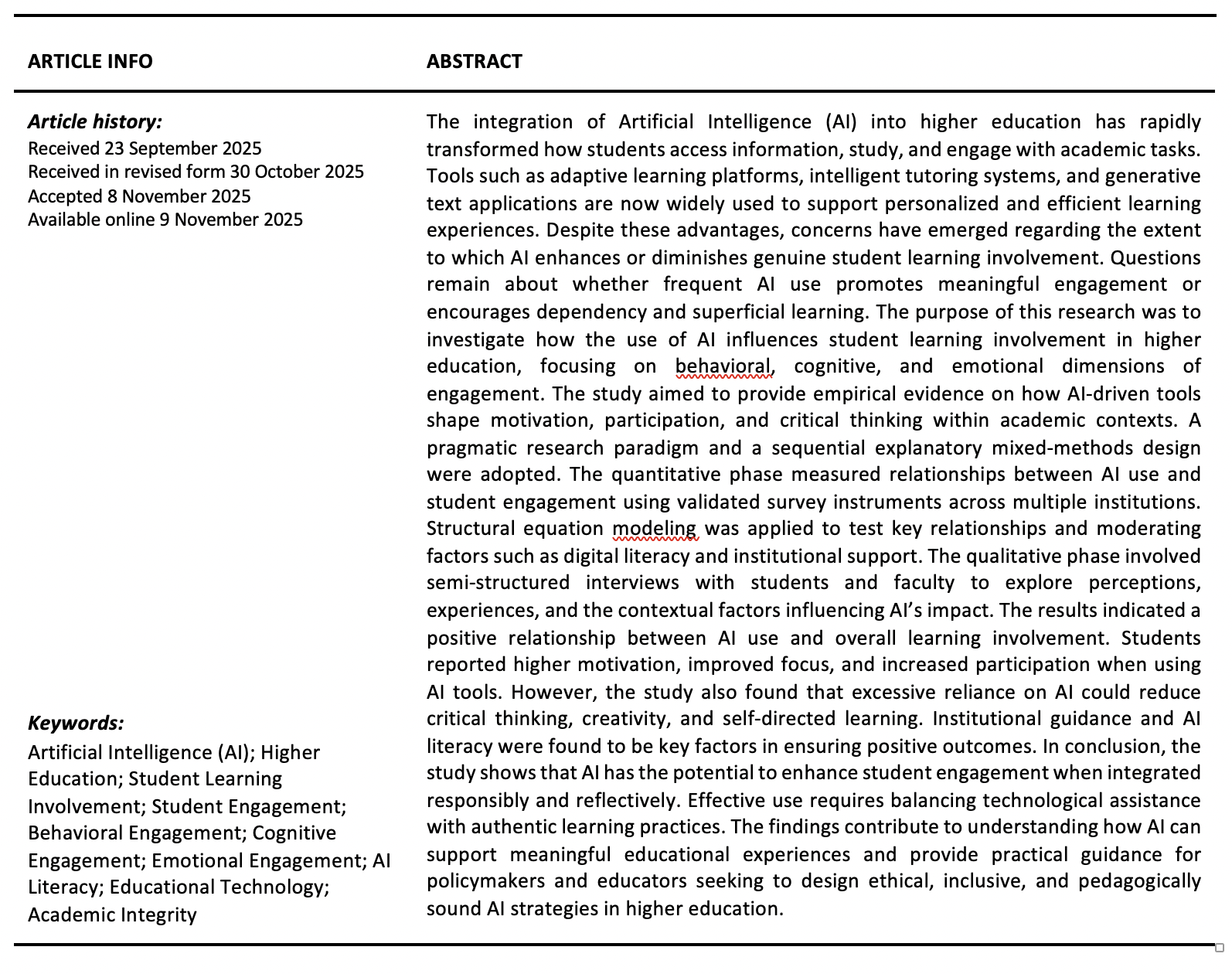Transforming Student Engagement in Higher Education: The Impact of Artificial Intelligence on Learning Involvement
Keywords:
Artificial Intelligence (AI), Higher Education, Student Learning Involvement, Student Engagement, Behavioral Engagement, Cognitive Engagement, Emotional Engagement, AI Literacy, Educational Technology, Academic IntegrityAbstract
The integration of Artificial Intelligence (AI) into higher education has rapidly transformed how students access information, study, and engage with academic tasks. Tools such as adaptive learning platforms, intelligent tutoring systems, and generative text applications are now widely used to support personalized and efficient learning experiences. Despite these advantages, concerns have emerged regarding the extent to which AI enhances or diminishes genuine student learning involvement. Questions remain about whether frequent AI use promotes meaningful engagement or encourages dependency and superficial learning. The purpose of this research was to investigate how the use of AI influences student learning involvement in higher education, focusing on behavioral, cognitive, and emotional dimensions of engagement. The study aimed to provide empirical evidence on how AI-driven tools shape motivation, participation, and critical thinking within academic contexts. A pragmatic research paradigm and a sequential explanatory mixed-methods design were adopted. The quantitative phase measured relationships between AI use and student engagement using validated survey instruments across multiple institutions. Structural equation modeling was applied to test key relationships and moderating factors such as digital literacy and institutional support. The qualitative phase involved semi-structured interviews with students and faculty to explore perceptions, experiences, and the contextual factors influencing AI’s impact. The results indicated a positive relationship between AI use and overall learning involvement. Students reported higher motivation, improved focus, and increased participation when using AI tools. However, the study also found that excessive reliance on AI could reduce critical thinking, creativity, and self-directed learning. Institutional guidance and AI literacy were found to be key factors in ensuring positive outcomes. In conclusion, the study shows that AI has the potential to enhance student engagement when integrated responsibly and reflectively. Effective use requires balancing technological assistance with authentic learning practices. The findings contribute to understanding how AI can support meaningful educational experiences and provide practical guidance for policymakers and educators seeking to design ethical, inclusive, and pedagogically sound AI strategies in higher education.
Downloads
Published
2025-11-11
How to Cite
Mojolou, D. N., Madli, F., Abdullah, A. S., Thomas, H., & Nayve Jr, R. (2025). Transforming Student Engagement in Higher Education: The Impact of Artificial Intelligence on Learning Involvement. ASEAN Artificial Intelligence Journal, 3(1), 58–65. Retrieved from http://karyailham.com.my/index.php/aaij/article/view/754
Issue
Section
Articles






